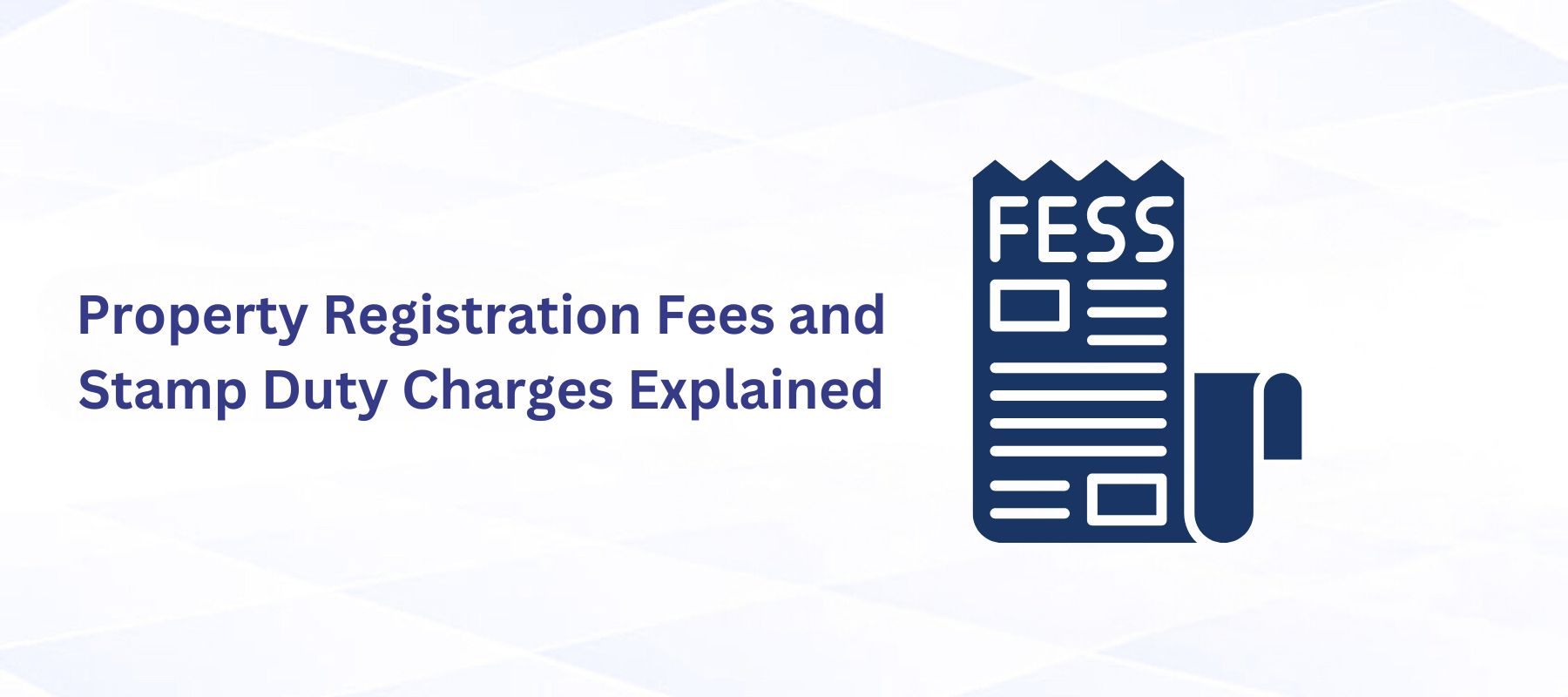Special Offers




Special Offers




11-Dec-2024 | Home Loan

Owning a property is a dream for many, and to ensure legal ownership, it's crucial to complete the formalities of property registration. These formalities include paying property registration fees and stamp duty charges, which vary across states in India. For prospective homeowners, understanding these charges is critical to planning a seamless property acquisition process. Let’s delve into the details of property registration fees and stamp duty charges to ensure clarity.
Property registration fees are a mandatory payment to officially record the ownership of a property in the government’s registry. This process ensures the legal validity of the transaction and prevents any future disputes regarding ownership.
Stamp duty is a tax levied by the state government on property transactions. It is charged as a percentage of the property’s market value or the transaction value, whichever is higher. This tax is evidence of the property purchase agreement.
Paying stamp duty and registration fees is essential for the following reasons:
Legal Ownership: Proper documentation ensures the rightful ownership of the property.
Government Revenue: These charges are a significant source of income for state governments.
Dispute Resolution: Registered documents are admissible in court as evidence in case of disputes.
The calculation of these charges depends on several factors:
Market Value of the Property: Higher market value results in higher charges.
Location of the Property: Properties in urban areas often attract higher charges than those in rural areas.
Purpose of the Property: Residential properties generally have lower charges compared to commercial ones.
For example, in Mumbai, the financial hub of India, the charges are governed by the Maharashtra Stamp Duty Act.
|
Property Location |
Stamp Duty Rate |
|
Within Municipal Corporation Limits |
6% of the market value |
|
Municipal Council/Panchayat Areas |
4% of the market value |
|
Gram Panchayat Areas |
3% of the market value |
|
Property Price |
Registration Fee |
|
Below ₹30 Lakh |
1% of the market value |
|
Above ₹30 Lakh |
₹30,000 (capped amount) |
With advancements in e-Governance, paying these charges has become easier and more transparent. For example, in Maharashtra, the Government Receipt Accounting System (GRAS) portal facilitates online payments. Here's how to proceed:
Log into the GRAS Portal: Visit the official website and create an account.
Provide Property Details: Enter the property’s location, market value, and personal details.
Select Payment Options: Choose whether to pay stamp duty, registration charges, or both.
Complete Payment: Use NEFT, RTGS, IMPS, debit/credit cards, or payment gateways.
Property Location: Metropolitan cities generally have higher rates.
Purpose: Commercial properties attract higher charges than residential properties.
Government Incentives: During certain periods, states offer waivers to encourage property transactions.
Convenience: Pay anytime, anywhere without visiting government offices.
Transparency: Ensures clear records of transactions.
Efficiency: Reduces paperwork and speeds up the process.
At Aavas Financiers, we understand the complexities involved in property purchases and the associated costs. We offer tailored financial solutions to ensure your dream home becomes a reality.
Competitive Interest Rates: Affordable home loans that cater to your needs.
Simplified Process: Hassle-free loan approvals with minimal documentation.
Digital Support: The Aavas Loan Mobile App simplifies loan applications and management.
Stamp duty is a tax on property transactions, while registration fees are charged for recording ownership in government records.
Yes, you can pay these charges offline at designated government offices, but online payment is quicker and more efficient.
No, they vary from state to state as stamp duty is a state subject.
Yes, under Section 80C of the Income Tax Act, you can claim deductions up to ₹1.5 lakh for these charges.
Failure to pay stamp duty and registration fees can render your property registration invalid and may lead to legal disputes.
Aavas Financiers offers home loans that can cover these costs, ensuring a smooth property acquisition process.
Stamp duty and registration fees are integral to property ownership in India. Understanding these charges and their implications can help you avoid legal hassles and plan your finances effectively. At Aavas Financiers, we’re committed to supporting your homeownership journey with reliable financial solutions.